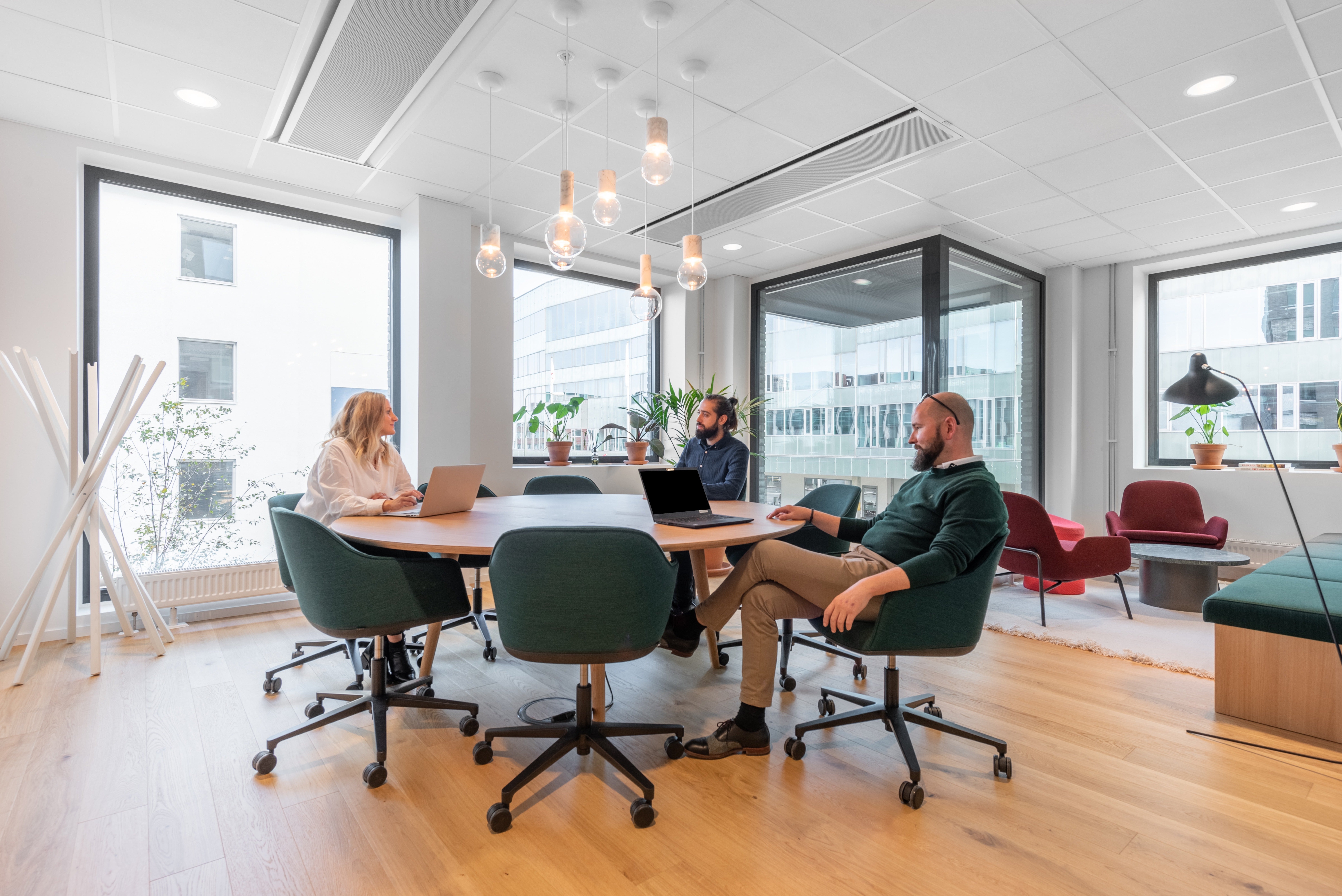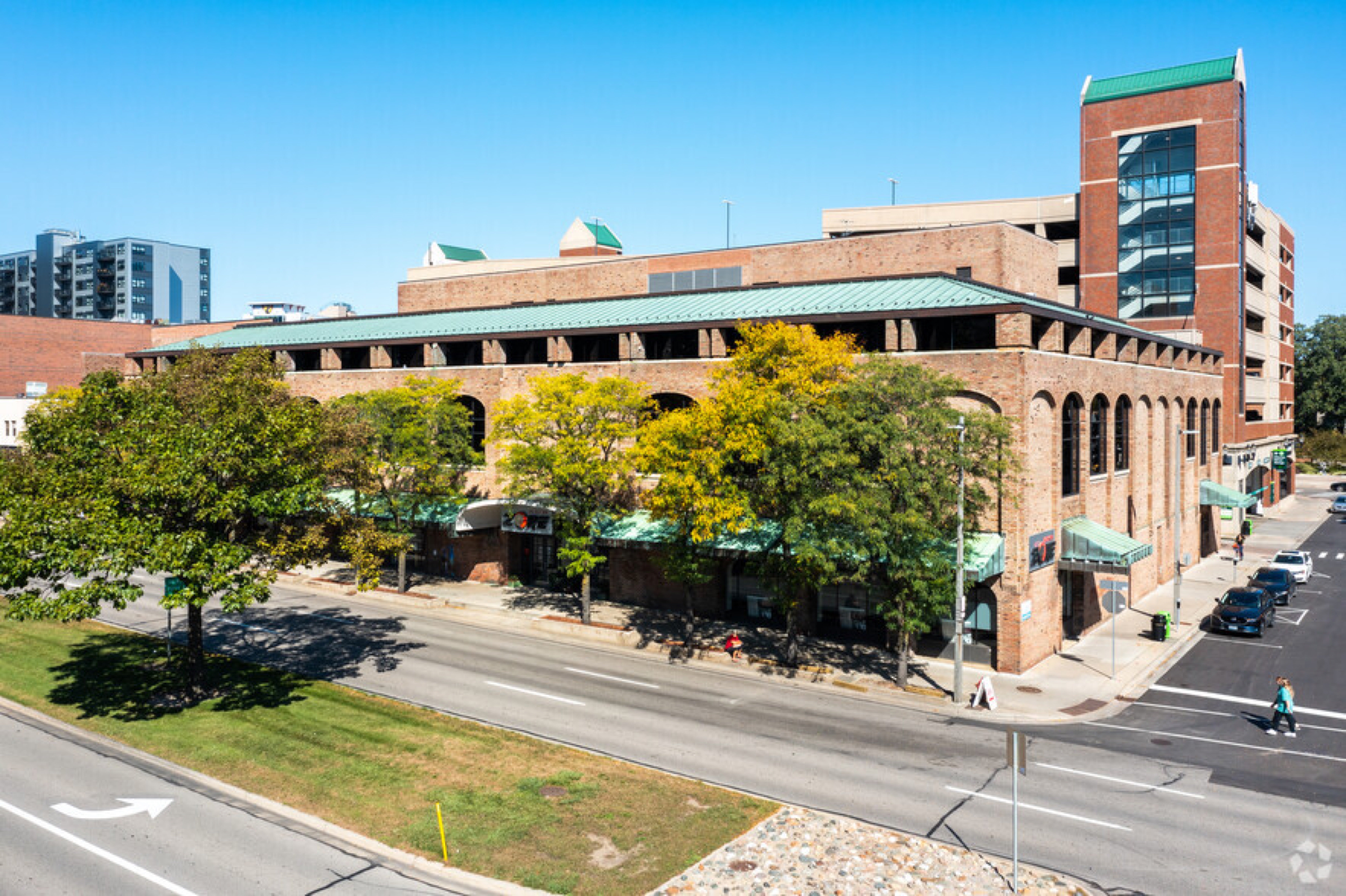E2E partner IWG reveals the great suburban revival
As employees lead more localised lives, living and working closer to home thanks to the shift to hybrid working, IWG Founder and CEO Mark Dixon describes how suburbs and dormitory towns are being transformed into vibrant community hubs

You could always be certain of one thing when it came to suburbs: they were never cool.
They were a solution for a society that suddenly, with the rise of the railway and the internal combustion engine, came to depend on the commuter as the essential driver of economic activity.
They could be cosy. They were probably practical. But cool? Absolutely not.
Until now, that is. All of a sudden, former so-called ‘dormitory towns’ and the outlying areas of cities are in growing demand from the kind of people who wouldn’t dream of living anywhere that doesn’t have its share of artisan bakeries, boutiques and exhibition spaces.
So why the sudden interest from so many previously urban types? Simple: Covid. Or rather the shift in working patterns that the pandemic accelerated, with the move to the so-called ‘hybrid’ or ‘hub and spoke’ model that enables people to work in a satellite office within walking or cycling distance of their homes. This has become known as the ’15-minute commute’.
As a result, exactly the sort of cash-rich but time-poor erstwhile urban professional who until recently would not have considered suburban living is upping sticks and leaving Islington and Deansgate for the wider open spaces of former commuter-belt hotspots like Berkhamsted and Macclesfield, joining those who saw the light years ago.
Unsurprisingly, house prices in desirable leafy postcodes have been hitting record highs over the past two years – and now office space is heading in the same direction. During 2021 and into 2022, we at IWG have been seeing some of the highest rises in demand for office space from companies looking for suburban and rural locations – well away from the city-centre hubs that used to dominate the office landscape.
In fact, our research shows that three times more FTSE 250 companies are looking to adopt the hybrid property model compared to those that plan to continue as they were before the pandemic. As a result, demand for our rural and suburban spaces grew by 29% overall in 2021, led by locations including Bromsgrove (52%), Beaconsfield (33%) and Tewkesbury (22%).
Many of these companies aren’t making a straight ‘binary’ choice by offering a combination of working at home and at a corporate office. Rather, by providing a new workspace closer to home, they’re giving people the opportunity to get out of the house, meet colleagues, network, and bounce ideas around.
As a result of this interest, our suburban centres are rapidly filling up or are already at capacity. We are actively looking for more property owners to partner with to open more suburban or rural locations.

A 2021 economic impact story we conducted in partnership with sustainability consultancy Arup found that rural and suburban economies could generate up to an extra £327m per year in the UK, due to the forecasted expansion of flexible office and coworking spaces, creating jobs and opportunities in towns and villages across the country.
This phenomenon isn’t restricted to the UK. Today, our centres in Long Island and Connecticut, once the heartlands of NYC’s commuter belt, are at full capacity. The story is the same across many of the more than 120 markets globally where we have centres.
So almost everywhere, suburbia is not only becoming cool: it’s also becoming better as a place to live and to work. That makes sense, for work is an important part of living. And, by eradicating (or at least substantially reducing) the need to commute, people everywhere are experiencing important improvements in their work/life balance and mental health.
All of a sudden, they are leading more localised lives, living and working closer to home, making them healthier and more productive. They are becoming richer too – confused.com research shows employees can save an average of £328 a month on train travel and associated expenses, and up to £128 a month if they commute by car. And it’s less environmentally damaging – minimising car exhaust fumes from the daily commute has an immediate impact on damaging emissions such as carbon monoxide, nitrogen oxides, sulphur dioxide and many others (including, of course, carbon dioxide).
The benefits aren’t restricted to employees. Companies are also seeing multiple gains: when you take fixed overheads into account, including rent, heating and support staff, hybrid-embracing employers are saving an average of more than £8,000 per employee per year. Not only that, but they’re also able to recruit the best talent from right across the world. As a direct corollary, 45% of employees we spoke to in a recent survey said they would change jobs rather than go back to commuting five days a week.
So it’s little surprise that 42% of businesses are planning either to move to or invest in shared offices. At IWG, this phenomenon is driving change in our own business. Of the 1,000+ locations we’re planning to open over the next year, the vast majority are in rural or suburban locations: places on our UK hitlist range from Shepherds Bush to Tunbridge Wells and Altrincham.
It’s great to see people waking up and shaking themselves to become free of the commuting nightmare they’ve been living with. But what of the cities they’re leaving behind? Well, I believe there’s good news to come there too. They will increasingly leverage their existing infrastructure to become social centres, conveniently sited at the heart of far-reaching road and rail networks for easy access in a post-commuting world.
Suburbia and the countryside for work and the city for fun and games? I can hardly wait.
Mark Dixon is Founder and CEO of IWG plc
You can view the complete E2E Job Creation 100 track here
